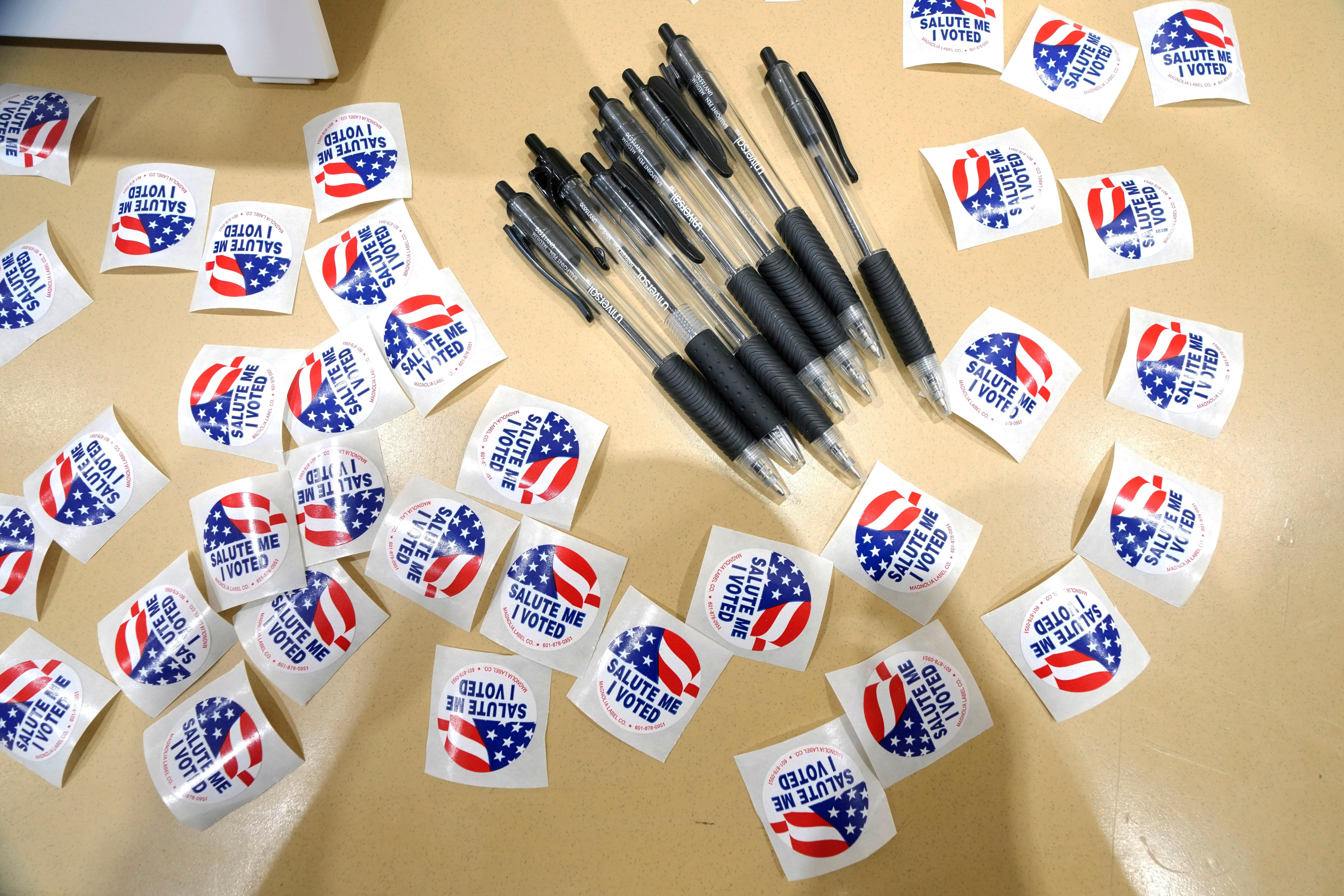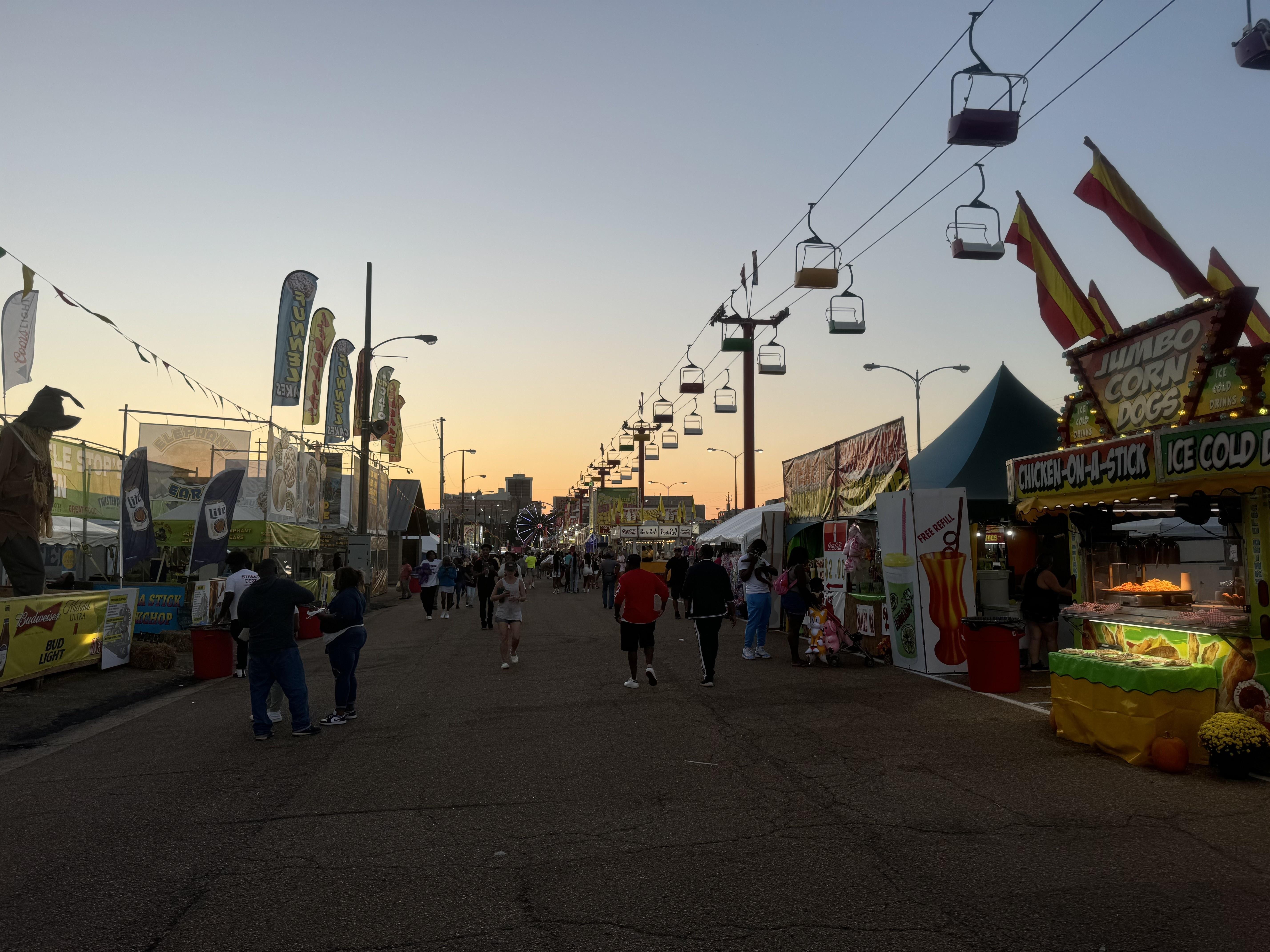No matter what the result is after polls close on November 5th, it's almost certain that Mississippi will not be a toss-up.
As election day nears, undecided Mississippi voters say key issues will decide their vote


No matter what the result is after polls close on November 5th, it's almost certain that Mississippi will not be a toss-up.

Michael McEwen
Undecided Mississippi Voters
The Republican Presidential nominee has carried the state in every election but one since 1972, and former President Donald Trump won Mississippi by nearly 20 points in 2020 en route to a losing effort to outgoing President Joe Biden.
But some voters in Jackson, a city that has for decades served as a blue dot in the otherwise red sea of Mississippi, say that earning their vote in 2024 is no longer that simple.
And even though the magnolia state’s six Electoral College votes are considered very likely to go to Trump, trends that may emerge among certain voting demographics in the state have the potential to reflect national tk tk on leading policy issues that have come to define this election.
National polling from the Pew Research Center shows roughly 8 in 10 registered voters feel the economy -- and each candidate's proposed solutions to high prices -- will be 'very important' in deciding who gets their vote.
One is Kira Paige, from Clinton, who spoke to MPB News while taking a break between rides at the Mississippi State Fairgrounds in October.
“I hate to say it, but it’s almost like we’re heading into another recession. So I’m behind any candidate who can lead us the other way. Look at groceries – we’re paying almost $4.50 for a gallon of milk. I just want to vote for someone who’s going to let me work without taxing me to death, and I can put food on the table for my kids and keep a roof over their heads.”
But at the time within a month of election day, Paige said she was yet to decide which candidate would best address those needs, as well as who she would vote for. She also described an increasingly common feeling of feeling stuck between two unfavorable candidates.
“It’s scary. It’s like you’ve got to choose the lesser evils, because we’ve had a Biden - Harris administration for four years already, and a Trump administration for four years before that. I think if you watched the [Presidential] debate, you saw what it’s going to be like.”
Lakeidra, who works in downtown Jackson and holds a masters degree in political science, says she was initially registered under the Libertarian Party, but recently began identifying as an independent.
Like Kira, she’s also undecided, but says the issue of improving reproductive rights for women will likely be the deciding factor in who gets her vote.
“As women, we’re supposed to have autonomy over ourselves, so of course we should be able to make that decision. The overturn of Roe v Wade is just… it’s substantial, whether you’re ‘Pro Life’ or ‘Pro Choice’,” she told MPB News.
According to a Pew Research Center study, the rate of likely Democratic voters who identified reproductive rights as a major issue has more than doubled since 2020.
Among likely Republican voters, the same rate has dropped by more than 11 percent. That's reflective of shifting priorities following the striking down of Roe v Wade in 2022.
But, Lakeidra is also interested in seeing which candidate presents the best plan to address her economic concerns, such as high prices.
“It seems like honestly the cost of everything has been going up. But honestly, I don’t necessarily think that a President will be able to change that. The President is separate from ‘Big Business’, or at least ‘Big Business’ and politics should be separate.”

In central Mississippi, fall means state fair season.
Mississippians have flocked to the fairgrounds in Jackson from across the state for 165 years now, but amid the food vendors, prettiest cow competitions and rides, many at this year’s fair were eager to share their thoughts about the election.
On the last day of the state fair, Mason Roberts, a 23 year old firefighter from Laurel, said he was leaning toward voting for former President Donald Trump.
“He’s seemed to sit more with me than Kamala has. Both him and [Republican vice Presidential nominee] J.D. Vance,” Roberts said.
“I’m mostly concerned about gun safety in schools and border control. Trump was straightforward with it and he did the best he could. I don’t think he got the chance to do everything he wanted to, which is why I’m hoping that he can come back and finish what he started.”
But the issue of immigration is only one of many policy flashpoints that have come to define this election cycle.
Raymond, from Brandon, says he's begun to feel the squeeze of inflation and high prices. But from his perspective, both parties are too preoccupied with partisan disputes.
“Overall, I wish we could focus more on what’s best for the country instead of what’s best for the party. No matter which candidate it is, my primary issue is let’s quit defending turf and take care of the country,” he said.
“I’m talking jobs, addressing inflation and housing prices. But to be honest, I haven’t seen much from either candidate other than a lot of talking around and not really addressing anything.”
Polling conducted last month by the NAACP showed one in four Black men under the age of 50 supporting former President Trump over current Vice President Harris. But more recent data shows those numbers have shifted in the other direction by as much as 7%.
Tamarcus, from Greenville, says he's most interested in seeing which candidate will address the unique needs of Black communities.
“I don’t think Kamala Harris being Black means that she’ll inherently improve some of what our communities deal with. She can mention things, but it’s all about what you’re willing to do, and how much you can do.”
“Donald Trump says things about helping the Black community, but sometimes it seems disingenuous about how he really feels about it. But I can’t just say that the Democratic Party or the Republican Party is about Black people; it’s about who is willing to step up.”
Another Jackson voter named Ike says he feels Black voters are often courted during elections, but that Black communities -- and issues within them -- are often ignored once the term begins.
“There’s been a lot of legislation moved addressing other communities and the issues they face. I think that in a direct way, this is a chance for leaders to deal with things more directly instead of just passing-off the buck, instead of taking accountability, and seeing where we can actually move forward.”
MPB’s Shamira Muhammad contributed reporting to this story.